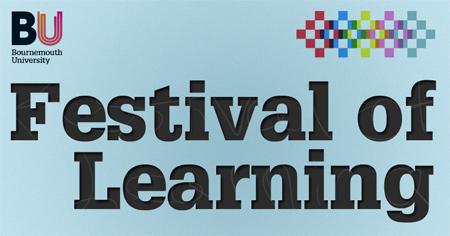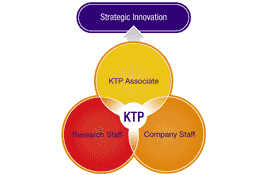 Special training fellowship in biomedical informatics (computational biology, neuroinformatics and health informatics)
Special training fellowship in biomedical informatics (computational biology, neuroinformatics and health informatics)
The MRC has identified the application of informatics as an area of strategic importance to health and medical research. This special training fellowship is aimed at developing outstanding individuals who are seeking to move into the application of mathematical, statistical and computational methods to biomedical and health research problems.
The MRC is keen to support individuals with a clear ambition for their research and a strong and practical sense of how they develop their careers as leading biomedical scientists and informaticians. The special fellowship is awarded at the post-doctoral entry level only and all proposals must include a well-specified formal training element in addition to a research project. The award commonly provides 3 years support and the opportunity to enhance the research training through placement in an overseas research centre, a second UK research centre or in UK industry.
The MRC expect to make up to five awards a year.
Who can apply?
The fellowships are aimed at those with non-biological, biological, non-clinical or clinical backgrounds who wish to undertake training and research in biomedical informatics. This is a prestigious fellowship; therefore applicants are expected to demonstrate an excellent track-record relative to their time in research.
Applications are particularly encouraged from those with advanced training in the physical or mathematical sciences or in information technology, who wish to apply their expertise to biomedical problems. In particular, applications are encouraged in imaging informatics.
Applicants should hold either a PhD or DPhil in a relevant discipline or expect to do so by the time they intend to take up the award. Medical or dental applicants holding a PhD can apply at any stage in their careers from immediately post-registration up to specialist registrar grade or be at the equivalent level in general practice or dentistry. The majority of successful applicants are within six years of the completion of their PhD but this is not an absolute requirement.
Post-doctoral applicants have no residential restrictions and may come from any country. If you are invited to interview by the biomedical informatics training and career development panel, you would be expected to demonstrate a commitment to the UK research effort in the area of biomedical informatics beyond the period of a special training fellowship award.
What funding is provided?
An MRC special research training fellowship in biomedical informatics is usually awarded for three years or occasionally up to four years when there is special justification.
The fellowship provides the fellow’s personal salary, research training support costs, annual travel costs, and all other relevant costs under Full Economic Costs (see the guidance notes for completing the application form and the form itself for more details). Salaries for clinical applicants will be payable up to, but not including, NHS consultant level. In addition, a small amount of salary can be requested for supervision but this should be appropriately restricted.
Where the fellowship includes attendance on a formal course leading to a Masters degree, or parts of a taught course, course fees may be requested. All applications must include an appropriate taught training component.
Overseas/Second UK Centre/UK Industrial Training Period
The special research training fellowship in biomedical informatics provides the opportunity to spend time in an overseas research centre, a second UK research centre or UK industrial centre in year two or three of the award. The aim of this training component is to provide a concentrated period of training that cannot be achieved as effectively within the academic host institution. MRC would normally expect this training component to be a single visit lasting up to 12 months. However, the assessment panel may agree to requests for visits to more than one centre, if this can be justified on the grounds of training needs. These should not be simply collaborative visits but applicants are encouraged to consider this opportunity by the assessment panel. You should be prepared at interview to discuss in detail any visits proposed.
Deadlines and submission details
The MRC special research training fellowship in biomedical informatics competition is held once a year. There is no need to submit an outline application.
Please see fellowship deadlines dates for application deadlines.
Closing date: 19 September 2012
Short listing: January 2013
Interviews: 27 – 28 February and 1 March 2013
Take up dates: April – September 2013
Please apply for the Special Training Fellowship using the RCUK Je-S application system. Your proposal must be submitted through the MRC Je-S system by 4pm on the relevant Fellowhip Application deadline date.
The RKE Operations team can help you with your application.
Completion of specialist clinical training
If you are medically and dentally qualified and have not already completed your specialist or vocational training, you should have a clear idea of your plans for doing so at the time of application. Applicants wishing to pursue specialist or vocational training must consult their Postgraduate Medical Dean, Regional Advisor in General Practice, and Royal College prior to submitting the fellowship application to find out if the research may be acceptable as training towards the Certificate of Completion of Training. Enquiries and subsequent applications to the relevant body should be made in consultation with the prospective head of department.
Flexibility
The MRC tries to operate this scheme as flexibly as possible. As part of the MRC’s equal opportunities policy, consideration will be given to applicants who are returning to science following a career break. There are no age limits for any of our schemes and all fellowships may be held part-time to fit in with domestic responsibilities.
The MRC recognises the challenges faced by clinicians in combining research training with the demands of a clinical career. MRC therefore allow up to 20 per cent of fellows’ time for NHS sessions.
Alternatively, Fellows may spend up to six hours a week on other work such as teaching or demonstrating. The payment for this work may be retained in full if this is the host institution’s normal policy. Fellows may seek other research grants to be held concurrently with their award during its last six months only. However, they may not exceed the permitted time for other work on research grants.
Please see fellowship terms and conditions for further details.
Applications for further fellowship support
MRC special research training fellows who wish to consolidate their research skills and make the transition from post-doctoral research and training to become independent investigators are eligible to compete for an MRC clinician scientist fellowship (medical/dental graduates, nurses, midwives and members of the allied health professions) or, an MRC career development award (non-clinical scientists).
Guidance for applicants
For further information please refer to MRC’s contacts page.





 As I mentioned in my previous post about the forthcoming
As I mentioned in my previous post about the forthcoming 







 This follows on from our previous light-touch review exercise, which was open to all academic staff and took place over the winter of 2010/2011.
This follows on from our previous light-touch review exercise, which was open to all academic staff and took place over the winter of 2010/2011. Also under starter’s orders – the BU REF Code of Practice will shortly be circulated to all staff, which outlines the timetable of REF preparation exercises and includes a host of other useful information related to how BU is preparing for REF2014. The final draft of this document has just been submitted to the REF Team for formal approval so watch this space for more information about this.
Also under starter’s orders – the BU REF Code of Practice will shortly be circulated to all staff, which outlines the timetable of REF preparation exercises and includes a host of other useful information related to how BU is preparing for REF2014. The final draft of this document has just been submitted to the REF Team for formal approval so watch this space for more information about this.











 Bournemouth University psychologists publish new book
Bournemouth University psychologists publish new book Connecting Research with Practice: FoodMAPP Secondment in Austria and France
Connecting Research with Practice: FoodMAPP Secondment in Austria and France Health promotion paper read 8,000 times
Health promotion paper read 8,000 times The Beautiful Work Challenge: On Birth
The Beautiful Work Challenge: On Birth Free event on Solutions to Inequalities in Dementia Diagnosis and Care
Free event on Solutions to Inequalities in Dementia Diagnosis and Care MSCA Postdoctoral Fellowships 2025 Call
MSCA Postdoctoral Fellowships 2025 Call ERC Advanced Grant 2025 Webinar
ERC Advanced Grant 2025 Webinar Horizon Europe Work Programme 2025 Published
Horizon Europe Work Programme 2025 Published Horizon Europe 2025 Work Programme pre-Published
Horizon Europe 2025 Work Programme pre-Published Update on UKRO services
Update on UKRO services European research project exploring use of ‘virtual twins’ to better manage metabolic associated fatty liver disease
European research project exploring use of ‘virtual twins’ to better manage metabolic associated fatty liver disease